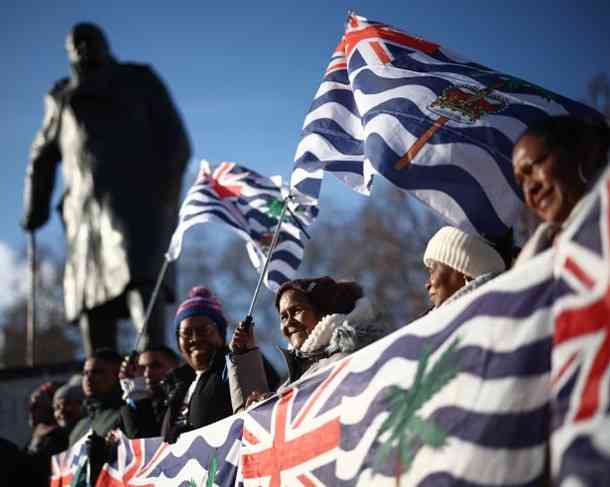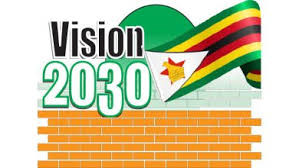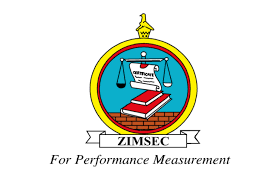
ZIMBABWEAN politicians and senior civil servants don’t care a hoot about development or the chaos they cause. They just think of their perks and nothing else as events last week proved.
They conspired in their greediness and lack of servant leadership to let the clock run down on the legality of the local currency Zimbabwe Gold (ZiG).
They were in no hurry. It was all hunky-dory even when the country ran technically with no currency for three weeks. No panic. No sense of urgency.
On April 5, Zimbabwe woke up to a new local currency. This was a fourth attempt after Zimbabwe had dollarised due to hyperinflation in February 2009. The local currency had lost all value and prices were changing as many as three times a day.
Dollarisation brought a semblance of economic order for the duration of the inclusive government, from 2009 to 2013.
However, beyond the mask of normalcy, production and manufacturing was bleeding jobs. By 2015, companies were retrenching or closing shop altogether.
Many workers are aware of the 2015 Zuva judgment that allowed permanent workers to be retrenched on three months’ notice. Thousands lost jobs and some never got employed again.
The government in an effort to save jobs and improve production introduced the bond note. The bond note was quickly replaced by Real Time Gross Settlement (RTGS) dollar. Like its predecessor, it quickly floundered.
- CSOs demand Zim debt audit report for 1980 to date
- Mystery shrouds use of US$961m IMF windfall
- Caledonia lays out Bilboes revival plan
- Govt guarantees Sable, Silo loans
Keep Reading
Next was the Zimbabwe dollar, ZWL, which also met the same fate.
Above all, the sovereign debt was ballooning. In fact, national debt more than doubled in a decade, from about US$9,7 billion to US$19 billion. Zimbabwe was on brink of implosion.
Then, Finance minister Mthuli Ncube started on the process of de-dollarisation. Initially, he introduced a mono-currency, ZWL, that did not last the distance as the government went back to multi-currency system (in reality, dollarisation).
On April 5, 2024, President Emmerson Mnangagwa used the Presidential Powers and Temporary Measures Act to introduce the ZiG currency.
It is common knowledge that statutory instruments (SI) creates under the Presidential Powers Act have a lifespan of 180 days only, unless the enabling Act is amended to incorporate issues raised in the SI.
It is in light of this that ZiG law was to end on October 4, 2024.
The government was aware, so was Parliament of the temporary nature of the ZiG law. The Finance ministry tabled a Finance Bill in July 2024 soon after presentation of the Mid-Term Fiscal Policy review. The Bill sought, inter alia, to make the ZiG a permanent currency.
However, true to its nature, the Mnangagwa administration is all talk and no action. It quickly forgot about the Finance Bill or its importance.
The public attention was diverted to the third term debate. It is always about power and no one seems to know what to do with it when they have it.
Ncube could not steer the Finance Bill in time despite the fact that Zanu PF has a two-thirds majority in the National Assembly. Parliamentarians in their oversight role saw no evil, heard no evil and spoke no evil about the misnomer.
Not even the Reserve Bank of Zimbabwe (RBZ), Treasury staff or the Attorney-General’s Office raised the issue as the clock was running down to October 4, 2024, the day the ZiG SI would lapse, creating financial pandemonium.
The Finance Bill continued at a leisurely pace, even playing second fiddle to the Zanu PF annual people conference. No one cared.
A good three weeks after the ZiG SI death, legal and parliamentary monitoring think-tank Veritas issued an Economic Governance Watch speaking to no legal backing of the local currency.
The issue became topical. It went viral on social media. Some opposition activists picked the issue and wanted to run away with it.
Mnangagwa finally realised the magnitude of his government’s ineptitude and hurriedly signed the Finance Bill into an Act.
However, that was not the end of the madness. The RBZ in trying to save face after being exposed as naked issued a mumbo jumbo of a statement saying the ZiG was a lawful currency.
“Currency reforms by their nature do not lapse simply because the instrument that introduced them has lapsed. The lapse of the Presidential Powers that introduced the currency does not therefore, create a gap in the law,” RBZ said.
It added: “Legally currency reform measures are only revoked by another legal instrument . . .”
This is hogwash to say the least. RBZ, like Treasury and Parliament, had slept on duty — a serious dereliction of duty.
In other jurisdictions, heads would have rolled. However, this is Zimbabwe and all the laggards expect to be applauded for their incompetence.
The currency issue is not an isolated case. Treasury has just for the umpteenth time proven it is above the law.
Two examples will suffice. Treasury is still to regularise its unauthorised expenditure stretching back to 2018.
In fact, there are two outstanding Financial Adjust Bills that have fallen into cracks of the Treasury incompetence.
The second example is the defiance of Justice Mafusire ruling in the case of Zimcodd vs the Minister of Finance.
The March 2023 ruling said the Minister of Finance should table a Debt Management Act
The court agreed with the Zimbabwe Coalition on Debt and Development that there should be a law that caps sovereign debt a debt ceiling and that debt should only be contracted after parliament ratifies any sovereign debt agreement.
It cannot be denied that Zimbabwe has a constitutional delinquent Treasury.
However, the situation is made worse by a complicit parliament men and women who do not take their constitutional oversight role seriously.
Men and women who want to be addressed as honourables but only find their voices in demanding better salaries and luxury vehicles.
Zimbabwe does not deserve a Cabinet or Parliament of deadwood members only concerned about their self-serving interests.
Once their interests are served, they go to sleep in the chambers or ululate for dry speeches during State of the Nation Addresses.
Both Cabinet and Parliament should be woken from their slumber.
Paidamoyo Muzulu is a journalist based in Harare. He writes here in his personal capacity.











